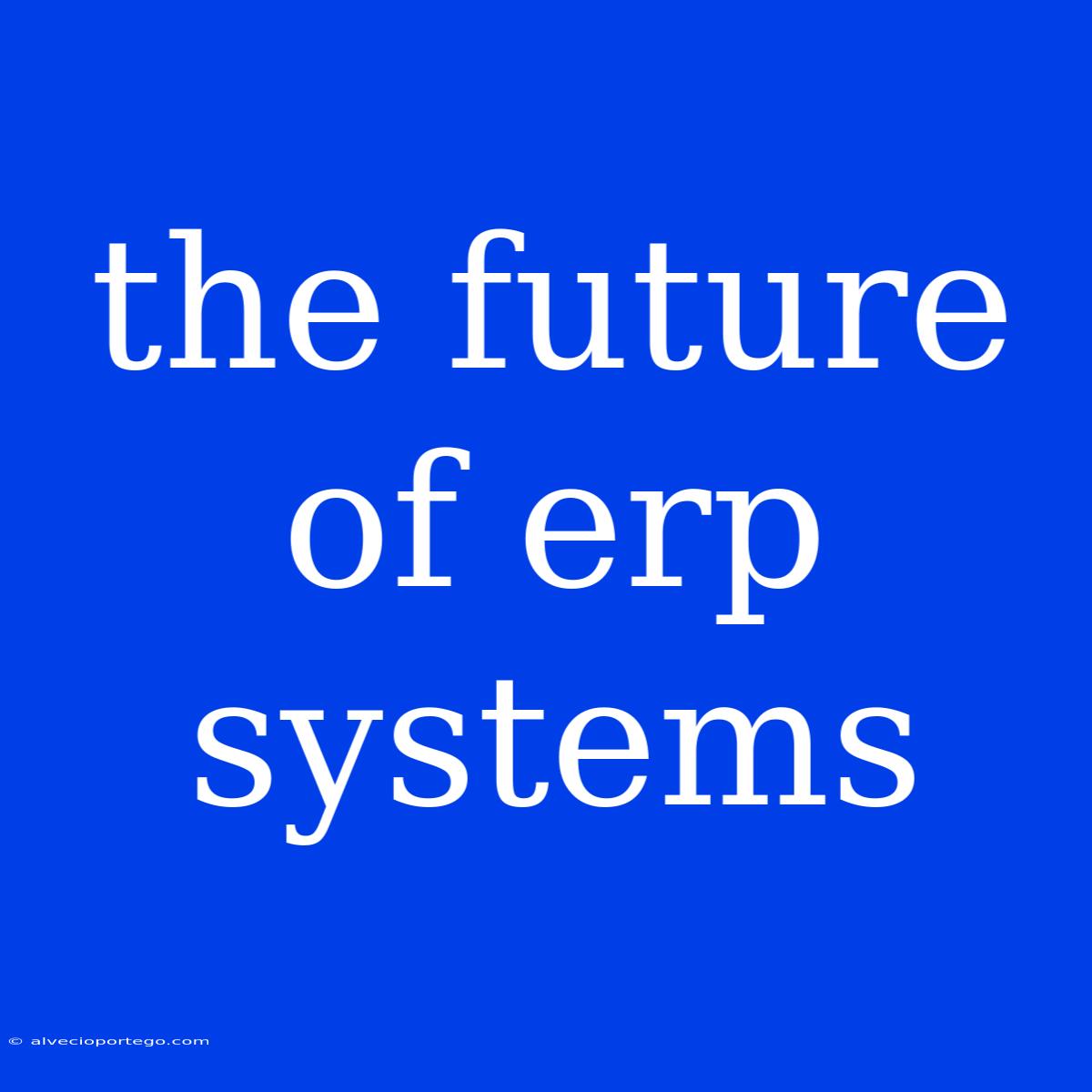The Future of ERP Systems: Beyond Automation, Towards Intelligence
Enterprise Resource Planning (ERP) systems have become the backbone of modern businesses, streamlining operations and driving efficiency. But the landscape of ERP is rapidly evolving. The future of ERP goes beyond automation, embracing intelligent technologies to transform businesses and create a more agile and data-driven future.
Here are some key trends shaping the future of ERP systems:
1. Artificial Intelligence and Machine Learning
AI and ML are revolutionizing ERP by automating tasks, predicting outcomes, and providing deeper insights. Imagine an ERP system that:
- Predicts demand fluctuations and optimizes inventory management based on real-time data analysis.
- Identifies potential risks in supply chains and proactively mitigates disruptions.
- Automates routine processes like expense reports, purchase orders, and invoice generation.
- Personalizes customer interactions by analyzing data and recommending products or services based on individual preferences.
2. Cloud Computing and the Rise of SaaS
Cloud-based ERP solutions are becoming increasingly popular, offering scalability, flexibility, and reduced IT overhead. SaaS (Software as a Service) ERP solutions provide:
- Accessible and affordable deployments: No need for large upfront investments or complex infrastructure management.
- Constant updates and upgrades: Users always have access to the latest features and functionalities.
- Improved collaboration and mobility: Access data and applications from anywhere, anytime.
3. Data-Driven Decision Making
The future of ERP is heavily reliant on data. Data analytics and business intelligence tools integrated within ERP systems empower businesses to:
- Track key performance indicators (KPIs) and gain real-time visibility into operations.
- Identify patterns and trends to optimize processes and make informed decisions.
- Measure the impact of changes and continuously improve performance.
- Predict future outcomes and develop strategies for growth.
4. Integration with Emerging Technologies
ERP systems are increasingly integrating with other emerging technologies, such as:
- Internet of Things (IoT): Connect to and gather data from sensors and devices to improve supply chain visibility and real-time asset tracking.
- Blockchain: Enhance security and transparency in financial transactions and supply chain management.
- Augmented Reality (AR) and Virtual Reality (VR): Improve training, maintenance, and collaboration processes.
5. Focus on User Experience and Digital Transformation
The future of ERP is about user-friendliness and intuitive interfaces. Modern ERP systems are designed to:
- Provide a seamless and personalized user experience across multiple devices.
- Empower employees with self-service tools and easy access to information.
- Encourage collaboration and knowledge sharing within the organization.
Conclusion
The future of ERP systems is bright. By embracing AI, cloud computing, data analytics, and other emerging technologies, businesses can leverage ERP to gain a competitive edge, optimize operations, and drive growth. The key to success lies in adopting a strategic approach to ERP implementation, focusing on user experience, and constantly adapting to evolving technological advancements.

